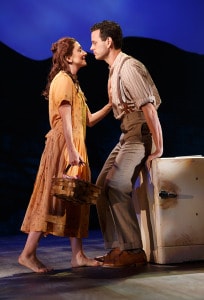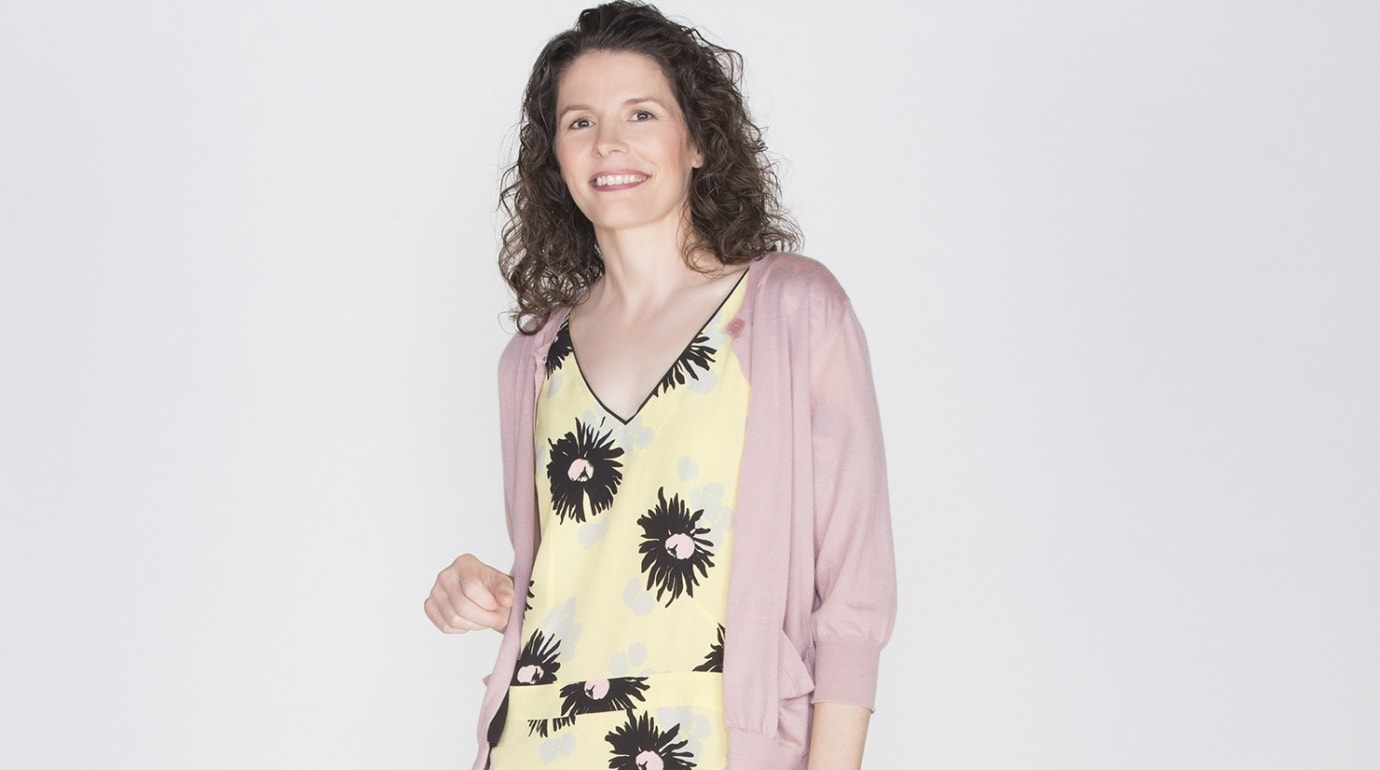Anyone near a radio or MTV in the late 1980s heard her voice twanging out pithy koans over a spiky guitar groove in the New Bohemians hit “What I Am”—the most memorable of them being, of course, “Religion is the smile on a dog.” (She later said she “meant that in an endearing way,” though clarification was hardly needed.)
Now Edie Brickell, a native Texan, is letting others do the twanging with the new musical Bright Star, which she co-wrote with comedy legend/bluegrass bandleader/playwright Steve Martin, and which just opened at the Old Globe Theatre in San Diego (not to be confused with the place, as Martin apparently deadpanned in a press release, where “Shakespeare first performed his plays”).
We spoke to Ms. Brickell on a break from rehearsal before previews began.
ROB WEINERT-KENDT: So how did the idea of making a musical with Steve come about?
EDIE BRICKELL: On the final day of recording our album, Love Will Come to You, we were talking about making a musical together. There were so many different stories and ideas to choose from, but we had a similar desire and intention—we were hoping we could make a musical like the ones we grew up with and just adored, and felt maybe we could give it a shot.
Bright Star is about a soldier coming home to North Carolina after World War II. How did you settle on a story and a period?
It was Steve—the spark of the story was in the song “Sarah Jane and the Iron Mountain Baby.” But it’s an era we both love. I’m crazy about movies from the ’40s, the ones with great ensembles and smart dialogue.
Only two songs from the original record are still in the show, right?

The most fun was writing all the new songs, getting to write for characters—that was just thrilling. To have a character speak through a song—I think I found my niche, I love this more than writing for myself. To come to life creatively this way was beyond anything I ever imagined for myself. Watching everybody work, from [director] Walter [Bobbie] to [music director] Rob Berman—these people have vision and imagination that was like…It was like there was a closed door in my brain, and I watched them open it, and I got to walk into this world of their imagination. I’ve learned so much from what they’re doing. It gives me so much more respect for musical theatre. I had no idea how many people pool their talents and create a vision.
Director Walter Bobbie said he’d never seen a score composed the way you and Steve do it. How does it work?
Steve hands me chords, a good piece of music, and I’ll start singing over it. It always worked like magic.
That’s not too different from the way many bands make music—R.E.M., for instance, where the band created the underlying music and Michael Stipe sang over it. Is that how you worked with the New Bohemians?
That is the way I started, singing with a band. But if I had something else I wanted to express, I’d pick up a guitar or go to the piano.
I like the way the record sounds like a blend of bluegrass and folk-rock. Does Bright Star have a more bluegrass sound?
It’s not old-time bluegrass. It has some moments like that, but it’s a really traditional musical. The songs are played on other instruments, and that takes it away from that style.
To me the songs sound eclectic—they easily pass from one style to another. I am sensitive to being bored by songs that sound too much alike, and Steve’s sensitive to that, too. We like that it feels like the mood keeps shifting and turning, keeps flowing forward.
Tell me about the lyrics, and learning to write for characters rather than writing for yourself.
I think because of the era I grew up in, the music was all very personal expression: My heart feels this way, that way. Then suddenly when you’re handed a character and some experience they’ve gone through, you realize how much empathy you feel. It’s like putting a puzzle together; it’s a great challenge. But I love putting myself in the moment of their experience, and what is it that I would say? To hear it just flow out, it’s a great surprise to me. I can’t tell you how much I love that. It’s a greater range of emotion and color that you can bring to songwriting.
I want to write more songs—I wish I had more songs for those people to sing. I love to be immersed in the feeling of writing a story.
In a story in the Times about the record, a former bandmate said you’ve been looking for the “right forum” for all the things you can do. It sounds like you’ve found it.
I think you’re right. I’ve never been this happy. I feel like I’m floating. It’s not really a challenge, it’s just a thrill.


